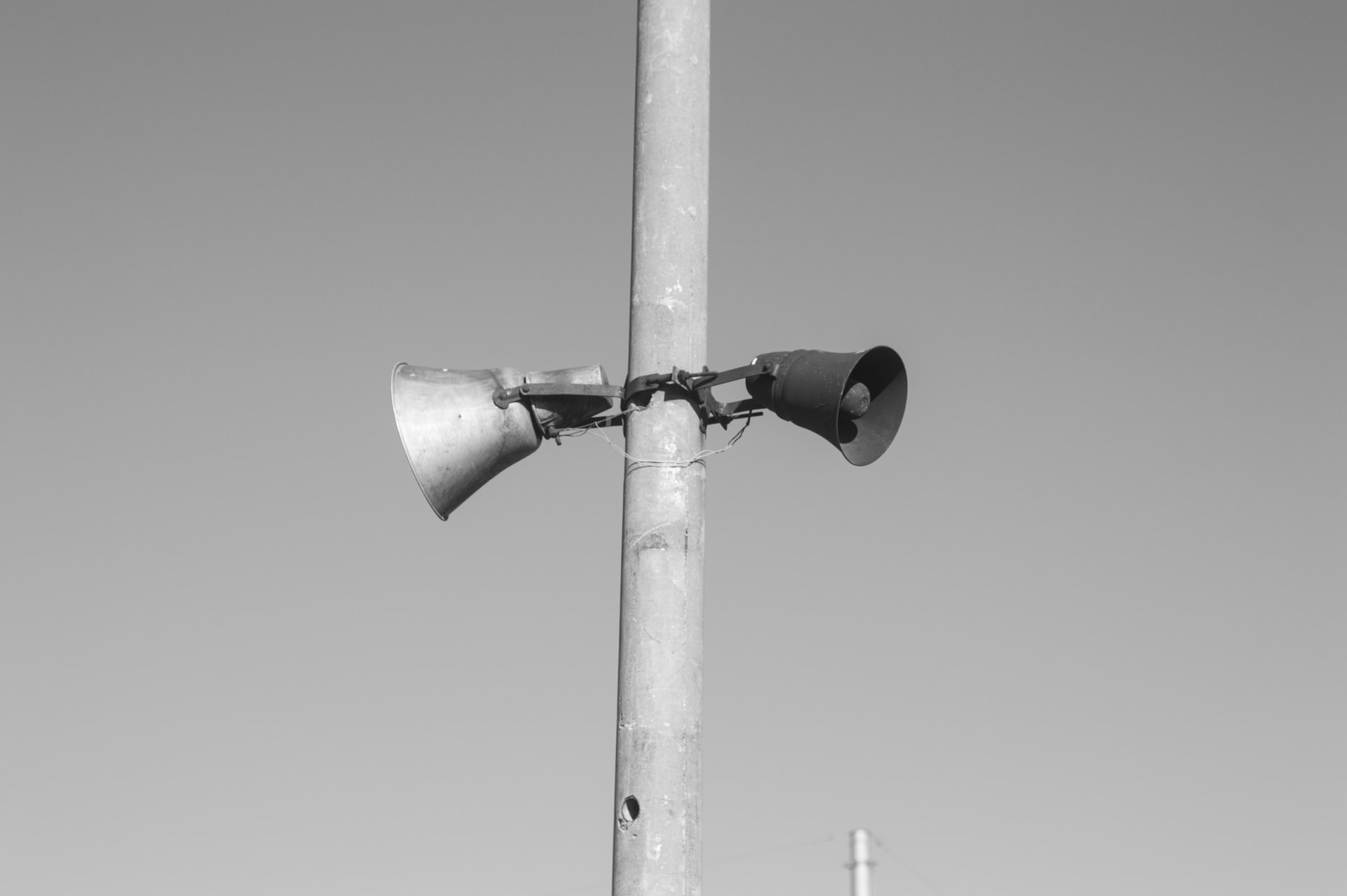In the small Florida county where I teach evening classes, they test the tornado siren nightly. Commissioners have claimed for decades that the tests are needed because the oxidized speaker and its connected system are old. Truthfully, the “tornado siren” is a leftover from a time before civil rights. It was the curfew siren for citizens of color. At 9:30 p.m., the long wail washes over downtown from the rusted water tower, vibrating an ugly, obsolete warning: Get inside if you know what’s good for you.
My four-hour, thrice-weekly class is nearly done. We are halfway through our final sixty-minute block. On this night, we’ve read Robert Hayden’s timeless poem “Those Winter Sundays.” We’ve discussed whether poetry can create redemption and if reflection and regret are inseparable. The students have learned about Hayden the man – his Detroit roots, his bad eyesight, his place in American literature. As they bow their heads to write in response to the poem, we hear the haunting moan of sordid small-town history. The test has begun.
The county removed confederate monuments years ago, and streetlamp banners proclaim the area’s proud diversity. Yet here my heterogeneous students sit, enduring a full half-minute of disruption from audible ghosts. There’s a sigh from somewhere in the back of the classroom, and eyerolls accompany upturned lips from several students. They keep writing.
One young woman is telling me how she disagrees with shoe polishing representing submissiveness. “I feel,” she states, “that the dad is just doing what dads do. Nobody wants their child going out of the house looking scruffy.” Her fast-food server uniform is always starched and pressed, even in this age of iron-free easy care.
Another student, an older man, is recalling the house his family once lived in. It, too, had “chronic angers,” and the noises frightened him as a boy. Nonetheless, his fondest memories come from that home. He writes of warm meals and boisterous conversations. He hears the sizzle of oiled cast iron and the loud chatter of cousins. There is no siren in his words.
Still other students are connecting with Hayden’s diction – they like the alliteration and assonance, they say, as it reminds them of a song or a childhood tongue-twister. They see the fun of wordplay even in painful passages like “…cracked hands that ached/ from labor in the weekday weather made/ banked fires blaze.” The music of the poem drowns all else. As workers, they also recognize those hands, that weather.
Somewhere amid the imagery, the memory, and the text-to-self connections, my students have forgotten the earlier disruption. Their minds see only a house, a fireplace, a pair of shined loafers or wingtips. The echoes resonate inside love’s offices. Tonight, we will not speak of the county line signs that call this place “Imperial” because the imperial knights of the Ku Klux Klan founded it. We will not speak of which 200-hundred-year-old live oak, now honored with a brass plaque, was used by lynch mobs.
Pencils are laid down like extinguished candles. One by one, the students lift their eyes from papers, blinking into a quiet present. The fluorescent lights and the hard-wired industrial clock hum. Fingers twitch, then begin tapping the brown tops of desks. I can tell some students are thinking of reaching for their phones, but it seems wrong, so they don’t. Instead, they look to their left and right, exchanging nods and glances of shared experience. As one last student blackens a final period, there is peace and grace among us.


